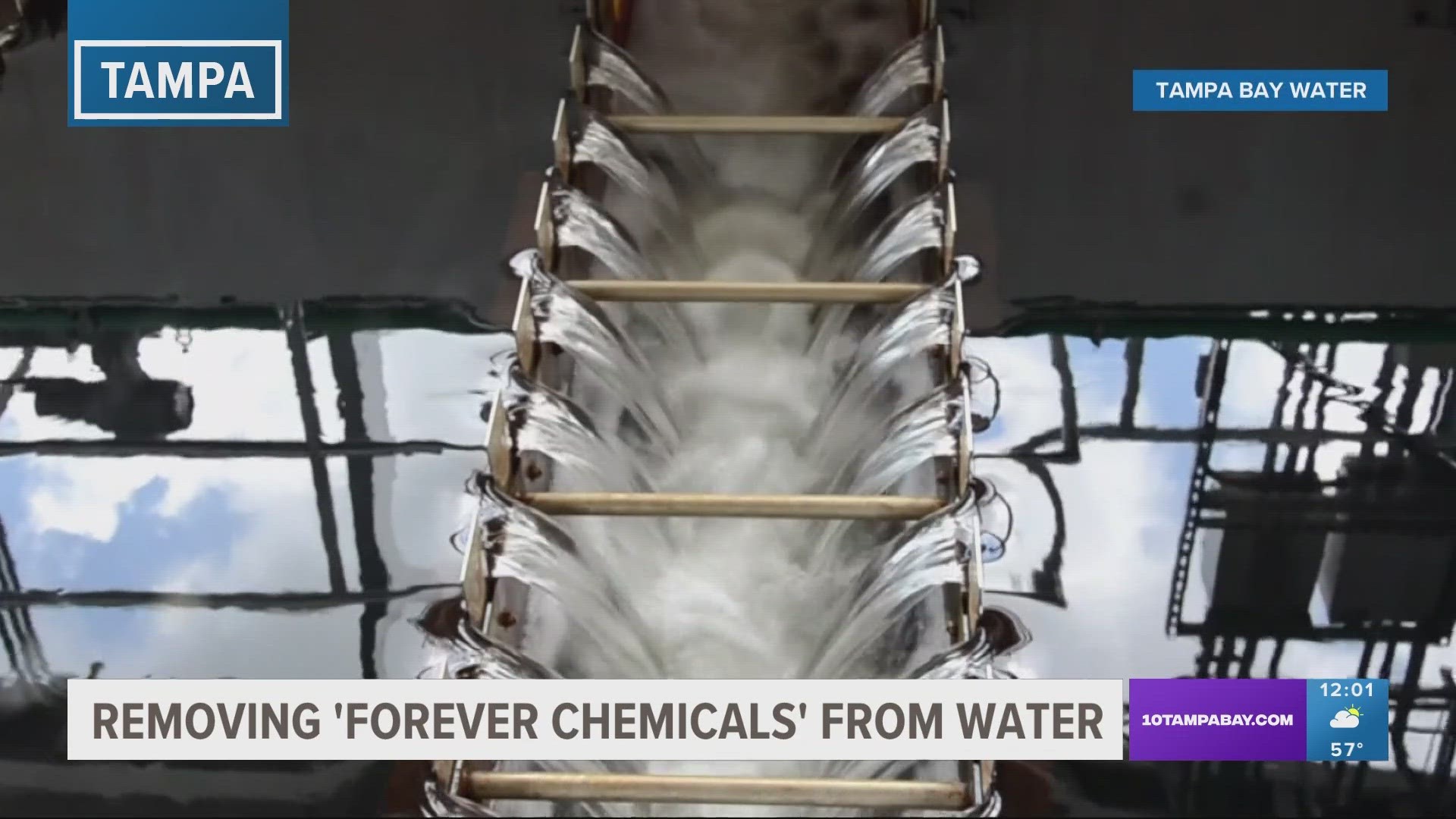TAMPA, Fla. — A study from the U.S. Geological Survey found at least 45% of America's tap water contained traces of "forever chemicals", a class of chemicals used to make products and packages resistant to water, grease, and heat. They don't break down in our bodies or the environment, and they've been linked to a variety of health problems.
This week, Tampa officials announced innovative plans to keep the city's water free of forever chemicals.
At a press conference at the David L. Tippin treatment facility, the Tampa Water Department unveiled new state-of-the-art technology that they said would put the city "well ahead of the curve" on improving water quality and limiting forever chemicals.
The new technology is called "Suspended Ion Exchange" (SIX), and the Tampa Water Department is trying to adopt it at its facilities. The technology works by passing raw water through a special resin that traps particles of unwanted chemicals in the water and replaces them with its own, safer ions.
Adopting the technology would make the Tippin facility the first SIX facility in the U.S. and the largest in the world, according to officials. They also say that fully adopting SIX would have tangible benefits, including:
- Reducing the amount of chemicals needed to treat drinking water, leading to $1.4 million saved each year.
- Improving the quality of Tampa's drinking water.
- Increasing operational safety at the water treatment plant.
The announcement comes as the Environmental Protection Agency is on the verge of releasing new rules regulating the levels of forever chemicals in drinking water, which are expected to become official in early 2024. The EPA has proposed a limit of 4 parts of trillion (or roughly 4 drops of water for every 20 Olympic-sized swimming pools). Tampa officials said more than one-third of Florida's water treatment facilities are over that limit.

